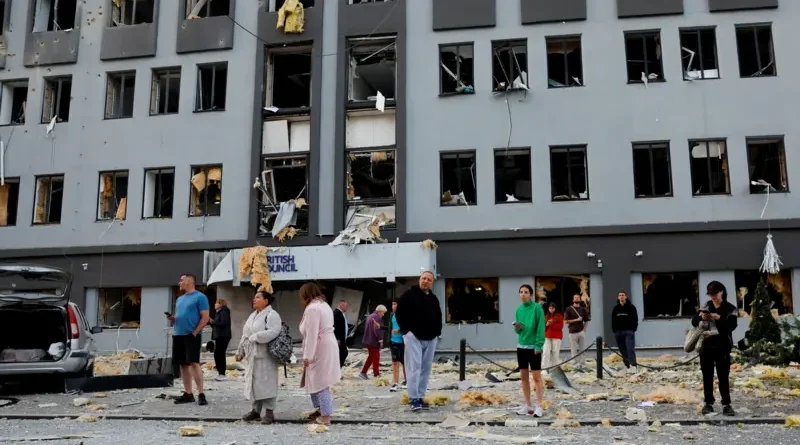British Council Ukraine Chief Won’t Speculate on Targeting
In the aftermath of the devastating missile strikes that shook Kyiv, the head of the British Council in Ukraine, Colm McGivern, has provided a measured yet resolute response, stating that he won’t speculate on Targeting the organization’s offices were deliberately targeted by Russian forces. This cautious position underscores the complex and often opaque nature of discerning intent in modern warfare, especially when cultural and educational institutions become collateral damage or potential objectives. The offices of the British Council, a renowned international organization for cultural relations and educational opportunities, sustained severe damage in the onslaught, compelling an immediate and indefinite closure that disrupts a vital bridge of people-to-people connection between Ukraine and the United Kingdom. McGivern’s refusal to engage in speculation is a diplomatic stance, focusing instead on the undeniable outcome and the organization’s unwavering commitment to its mission despite the destruction.
During an interview with BBC Radio 4’s PM programme, McGivern confirmed the extensive damage to the Council’s facilities, painting a picture of a physical space that can no longer serve its purpose of fostering learning and cultural exchange. However, he was very clear in shifting the conversation from a single, potentially debatable incident to a much broader and well-documented pattern of aggression. While he won’t speculate on Targeting this specific hit was intentional, he stated unequivocally, “What I do think is intentional is Russia’s continued attacks on education and cultural infrastructure in Ukraine.” This critical distinction moves the focus from a isolated event to a systematic campaign, aligning with widespread reports from UNESCO and other watchdogs that have documented hundreds of attacks on schools, universities, theatres, and museums since the full-scale invasion began. This pattern reveals a troubling strategy that views culture and education not as neutral sanctuaries but as tools for dismantling national identity and resilience.
Despite the physical blow, the spirit of the institution remains unbroken. McGivern’s comments were not of defeat but of profound determination. He emphatically declared that the British Council is “steadfastly determined that we will continue to support… education and cultural links for Ukraine with the UK.” This promise signifies a commitment to adapt and persevere, likely moving programs online or to secure alternative locations, ensuring that the crucial work of building skills, fostering dialogue, and maintaining cultural ties continues uninterrupted. The damage to a building, therefore, has not damaged the resolve of the organization itself. By choosing not to speculate on the motives behind the strike, the British Council boss avoids a political rabbit hole and instead delivers a more powerful message: regardless of why the attack happened, the response will be a redoubling of efforts to support the Ukrainian people, affirming that culture and education are essential pillars of society that cannot be so easily erased. This dignified response highlights the role of soft power and cultural diplomacy as a form of quiet resistance against aggression, proving that while offices can be damaged, the connections they foster are much more resilient.
Go To Main Page

